Best budget bass guitars: our top pick of basses under $500/£500
Need to tackle the low-end on a budget? Not to worry, our experts have run the rule over our favourite bass guitars that come in under $500/£500
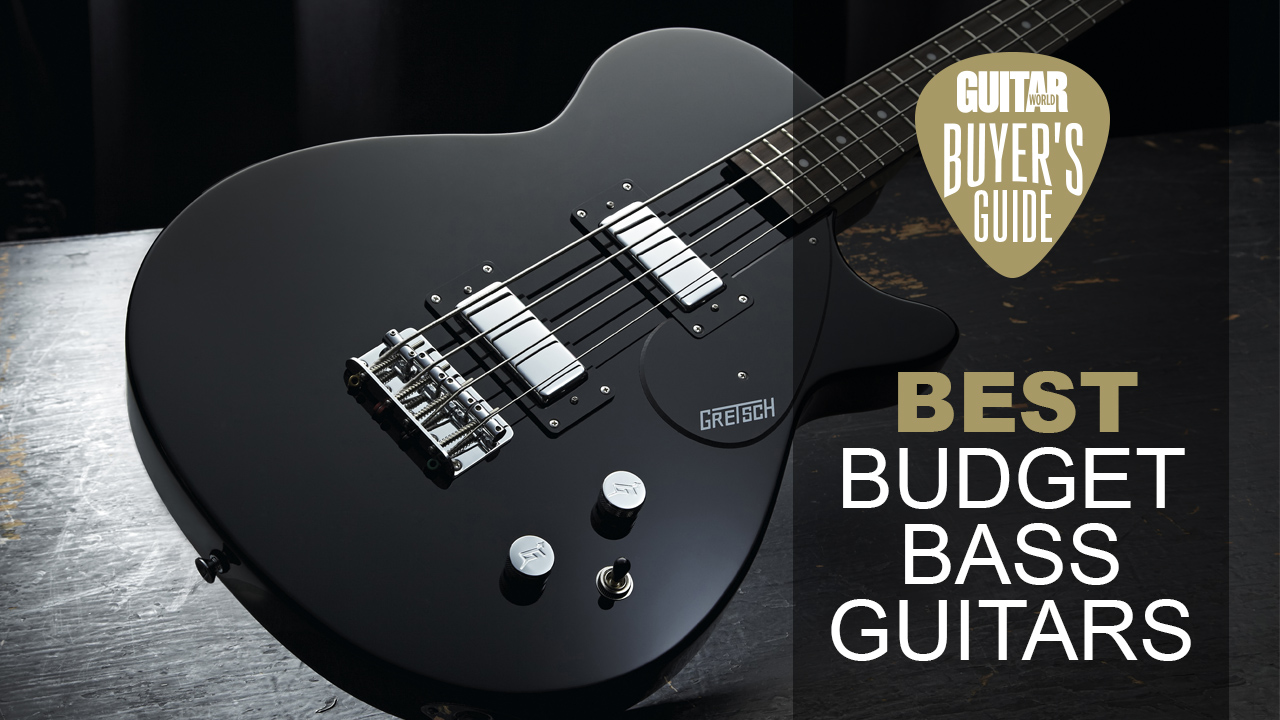
All the latest guitar news, interviews, lessons, reviews, deals and more, direct to your inbox!
You are now subscribed
Your newsletter sign-up was successful
The bass guitar is crucial to any band’s sound. Without it, you wouldn’t have the low end power that drives so much of the music we love. If you’re thinking of taking up this crucial instrument, or you fancy adding another piece to your existing collection but you’re keeping an eye on the price tag, then you might want to consider one of the best budget bass guitars on the market today.
These days budget basses are reliable, and sound good and we’re seeing some really good stuff hitting the market – bassists have never had such a wealth of affordable choices. With technology improving at an exceptional rate, the quality of budget bass guitars has never been so good – and basses that might have set you back $750 ten years ago now might only cost you $300-400.
Whilst dropping a load of cash on a pricier bass will get you some killer tones and features, these aren’t always necessary – and quite often, those tones are achievable with a cheap bass and a little bit of work. If you’re on the road playing in bars and clubs, then a good sub-$500 bass will serve you just as well. Moreover, the stakes are a lot lower when playing in a rowdy bar with an affordable bass compared to carrying around your desirable American-made Rickenbacker!
We've also included some expert buying advice at the end of this guide, so if you'd like to read more about what to look for in a budget bass, then we’d suggest you head straight there. If you'd rather get to the products, then keep scrolling.
Best budget bass guitars: Quick list
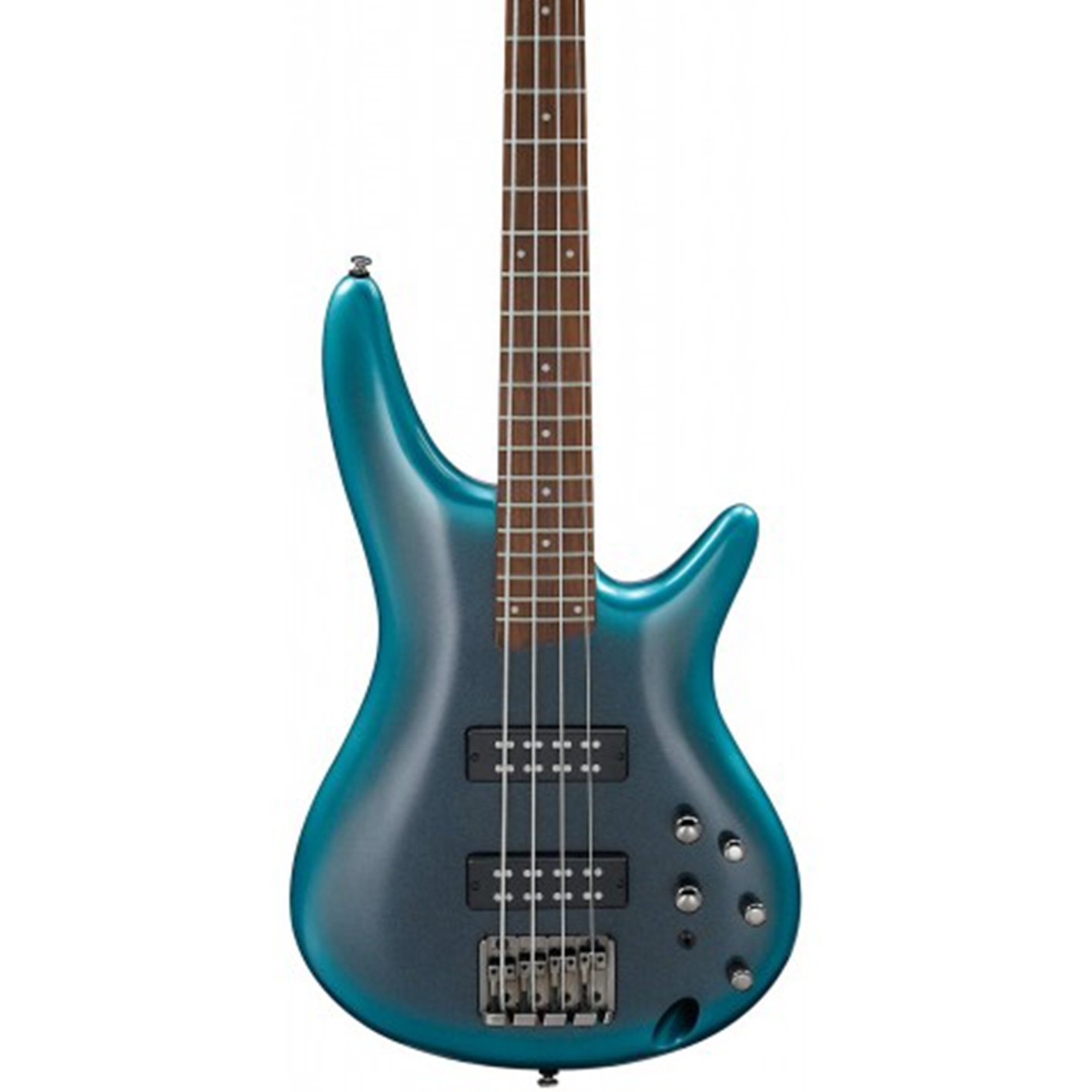
If you want a modern rock or metal sound, then the high output PowerSpan Dual Coil humbuckers can dish out powerful, thunderous tones whilst retaining note clarity nicely. At the push of a button you can switch these pickups into single coil mode for more traditional, old-school tones. There’s even a low-end enhanced single coil mode for beefing up those bass frequencies.
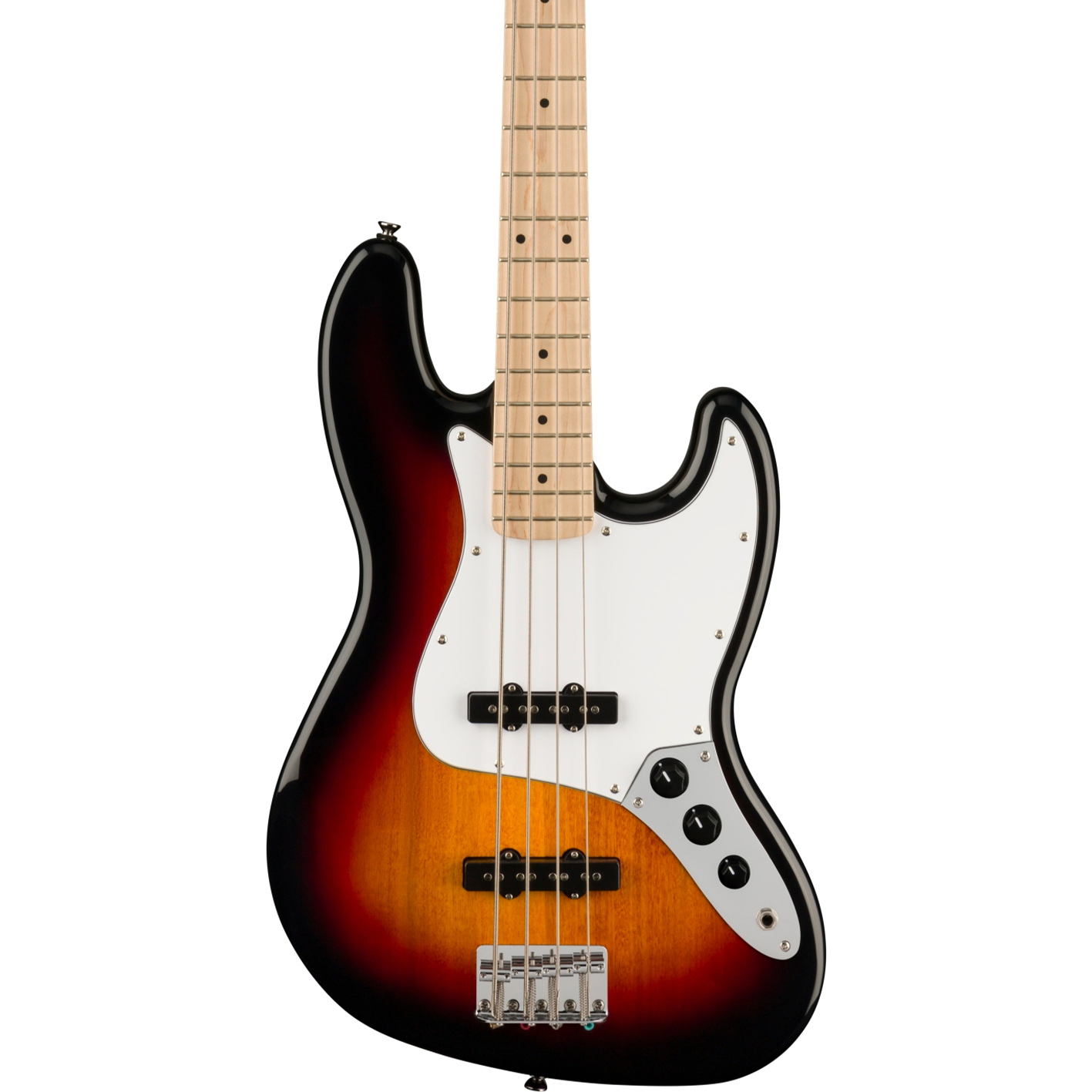
This is a no-frills Jazz bass made by Squier, the sister company of Fender. Whether it’s funk, rock or pretty much anything else you’re playing, you can’t go wrong with a Jazz bass. Squier’s Affinity range aims to provide players with high quality instruments at an affordable price. If you’re just starting out and you want a reliable bass that doesn’t cost too much, then this is one of the best options out there.
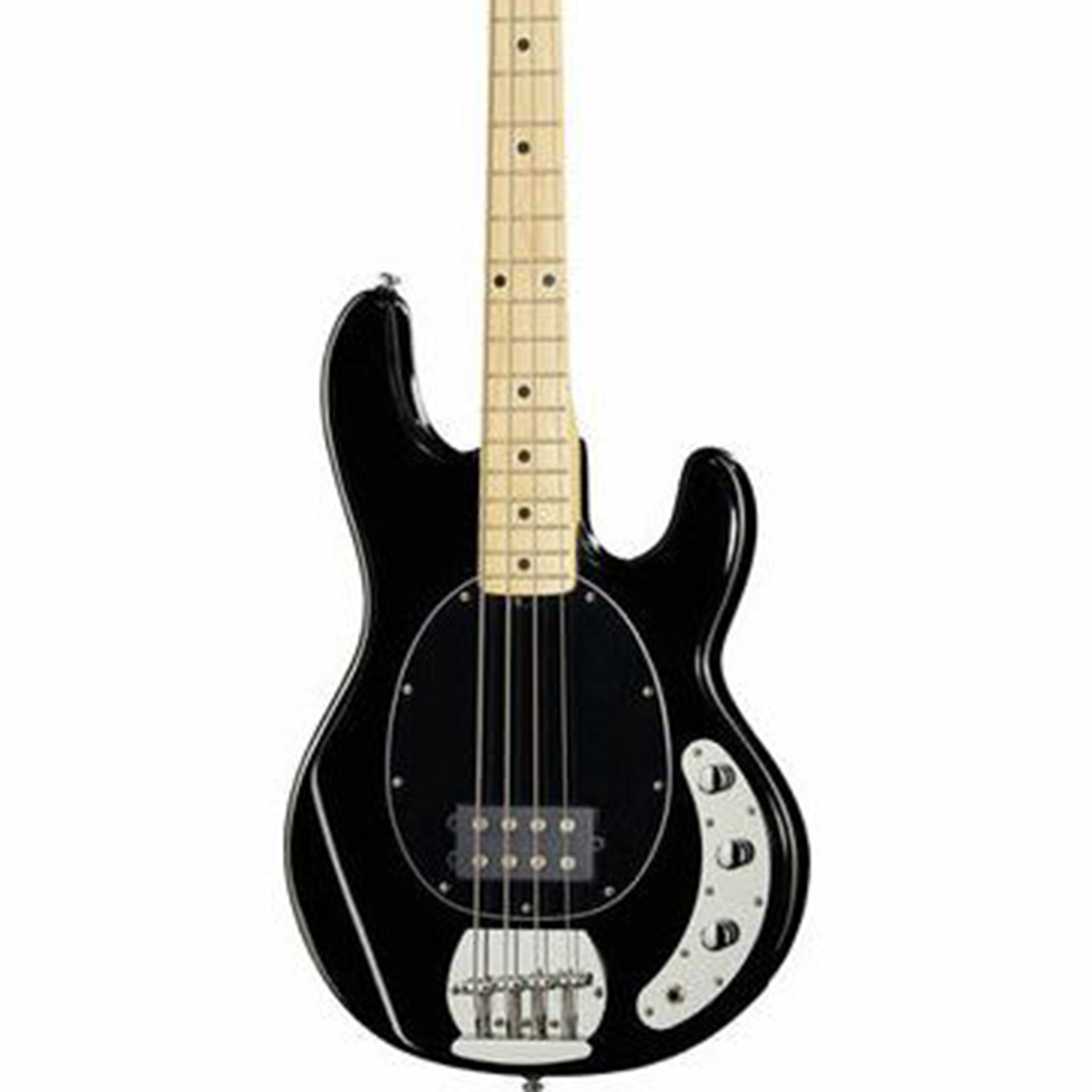
This is a cheaper version of the famed Music Man Sterling bass. Fitted with a single humbucker, it’s capable of summoning some great, rumbly bass tones suitable for everything from rock and metal to jazz and funk. The on-board active EQ is great for tone shaping as well, allowing you to cut or boost both treble and bass frequencies so that you can be heard better in a mix.
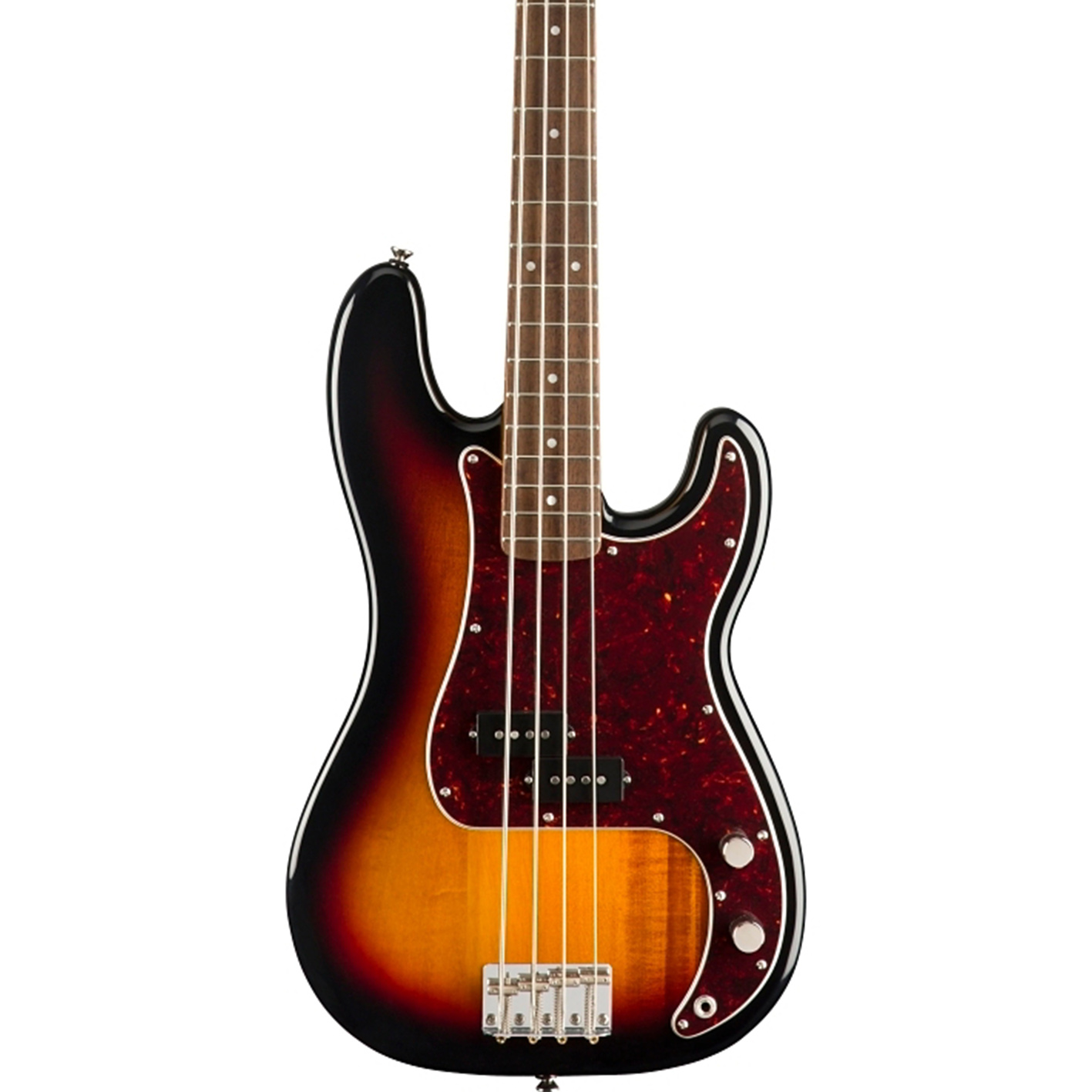
The Squier Classic Vibe Precision gives you that luscious deep, warm tone, with a nice little mid-range bump. It’s a key part of the soul and Motown sound, though classic rock, punk, pop and country bassists love them too – basically, there’s not much they can’t do. It has a single pickup, with a volume and tone knob – the latter of which, when moved around, can have a massive impact on the sound.
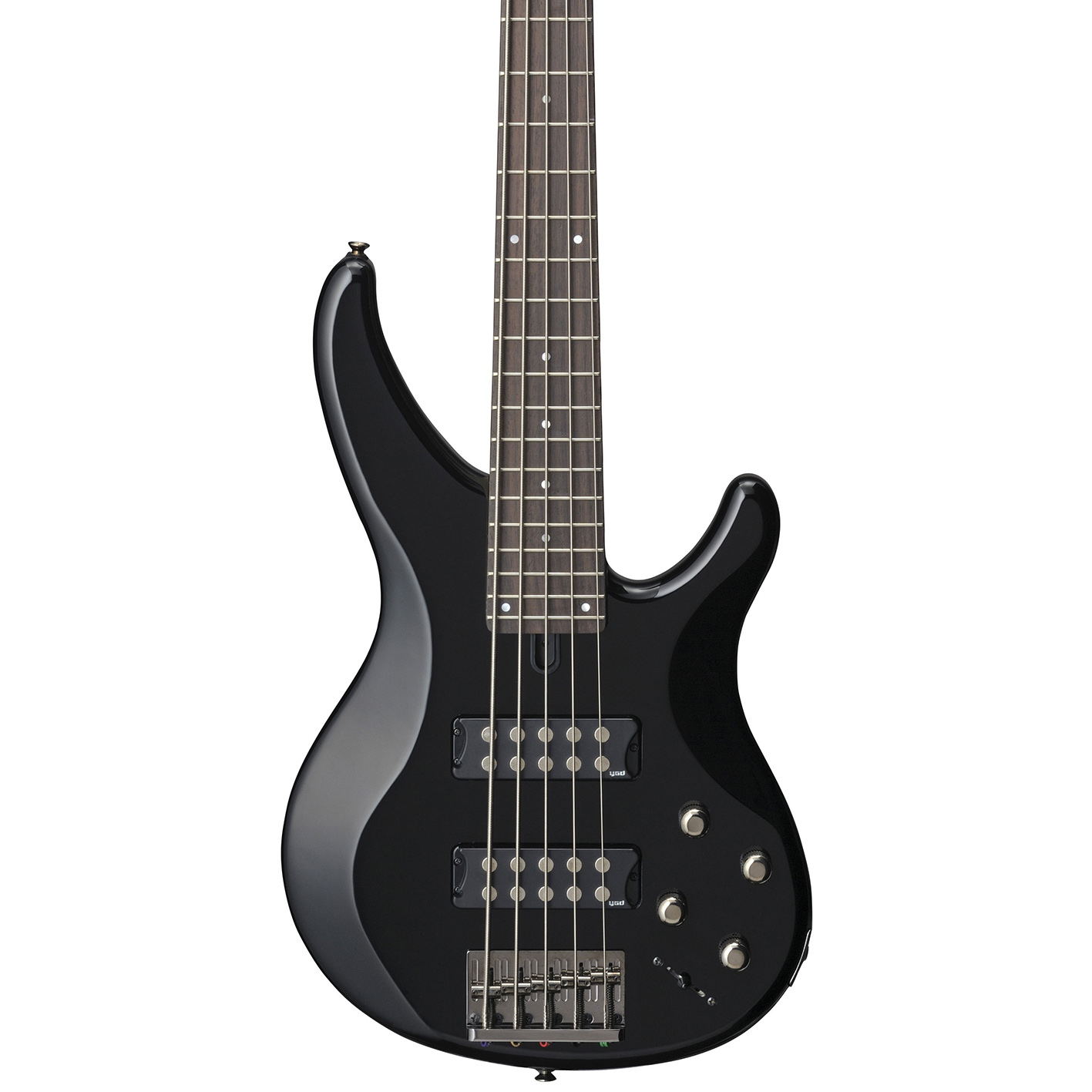
Available in both 4 or 5 string formats, the Yamaha TRBX 300 basses are powerful beasts. Fitted with ceramic magnet-equipped pickups that help deliver a strong, deep, clear tone, they’re great for everything from jazz to metal. Whether you need a dynamic clean tone, or a full-on, overdriven rock bass sound, these hum-cancelling pickups, along with an active EQ, have you covered.
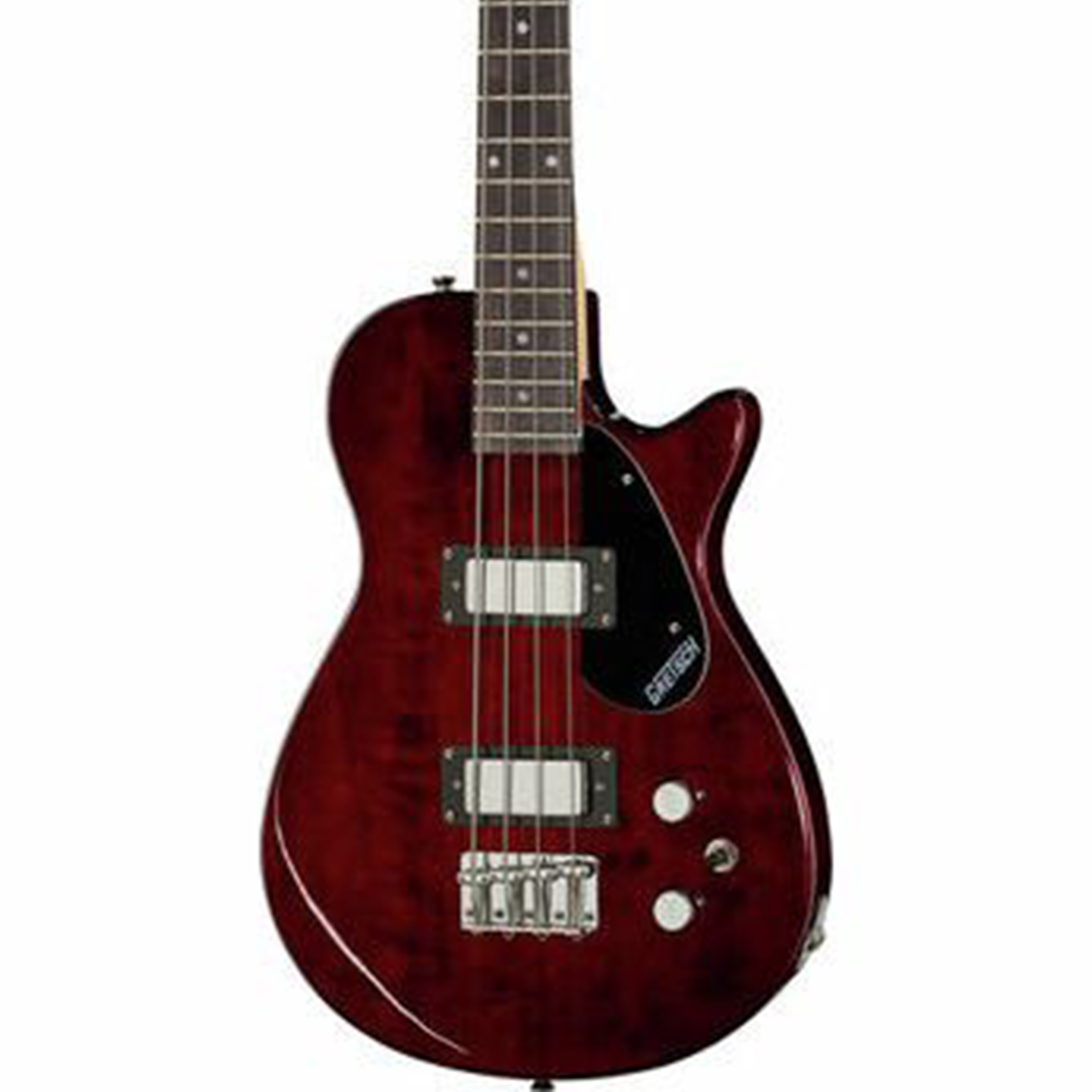
Coming in at well under our $500 budget, it offers some serious bang for buck and will provide indie rockers, country players and metalheads alike with the low end rumble they so desire. It’s fitted with a pair of single-coil pickups that deliver a range of vintage-inspired tones. The three-way pickup selector allows for a variety of sounds too, from super warm and mellow in the neck position, to a brighter sound with a snappier attack in the bridge position.
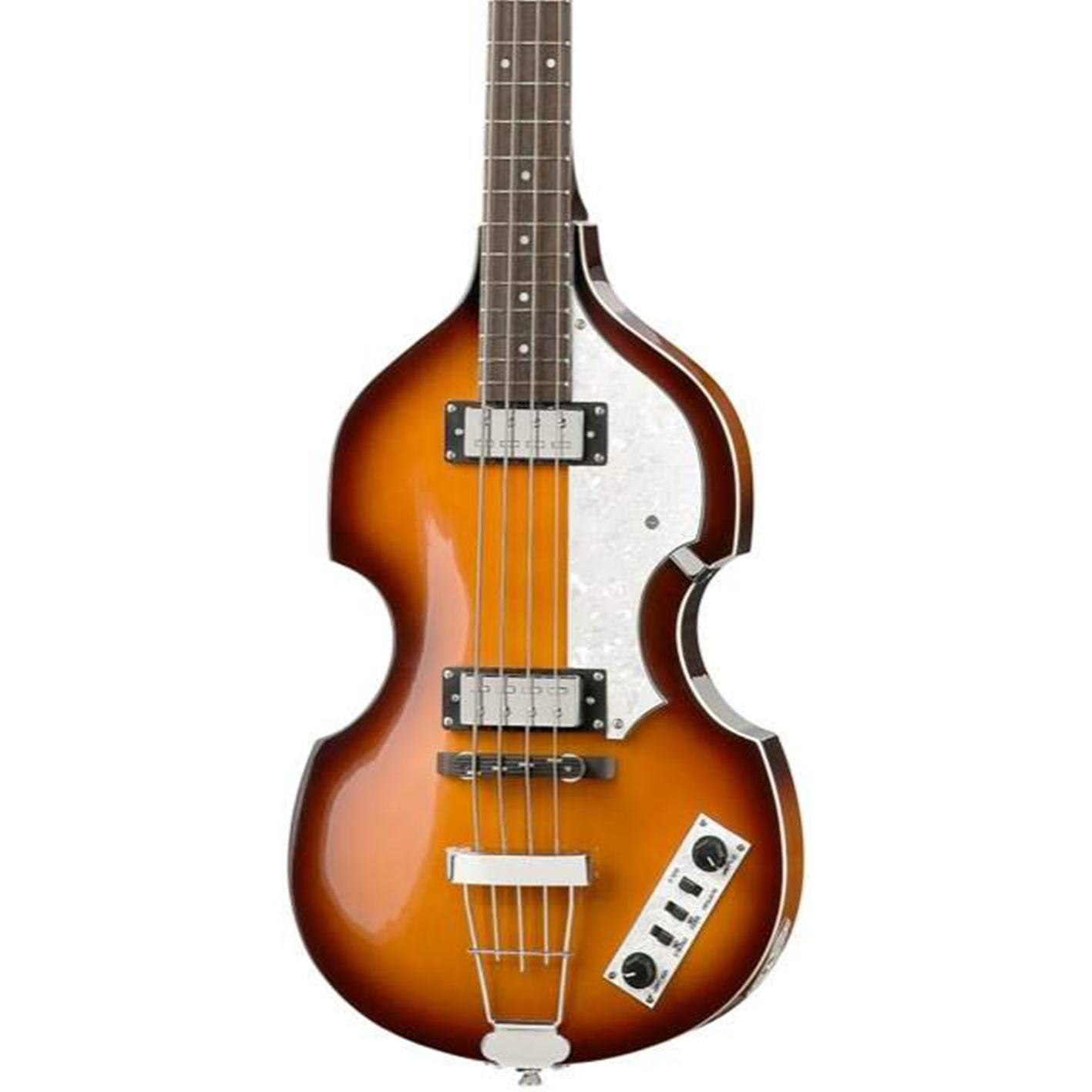
For fans of the Fab Four, this is one of the best bass guitars that you can get for under $500. Of course, it’s not the same model as the one McCartney used, but it will certainly get you in the right ballpark. The Hofner Ignition isn’t just a ‘Beatles bass’ though – it’s actually great for all sorts of different styles of music: classic rock, soul, jazz and more. You don’t get much sustain, but that’s part of its charm.
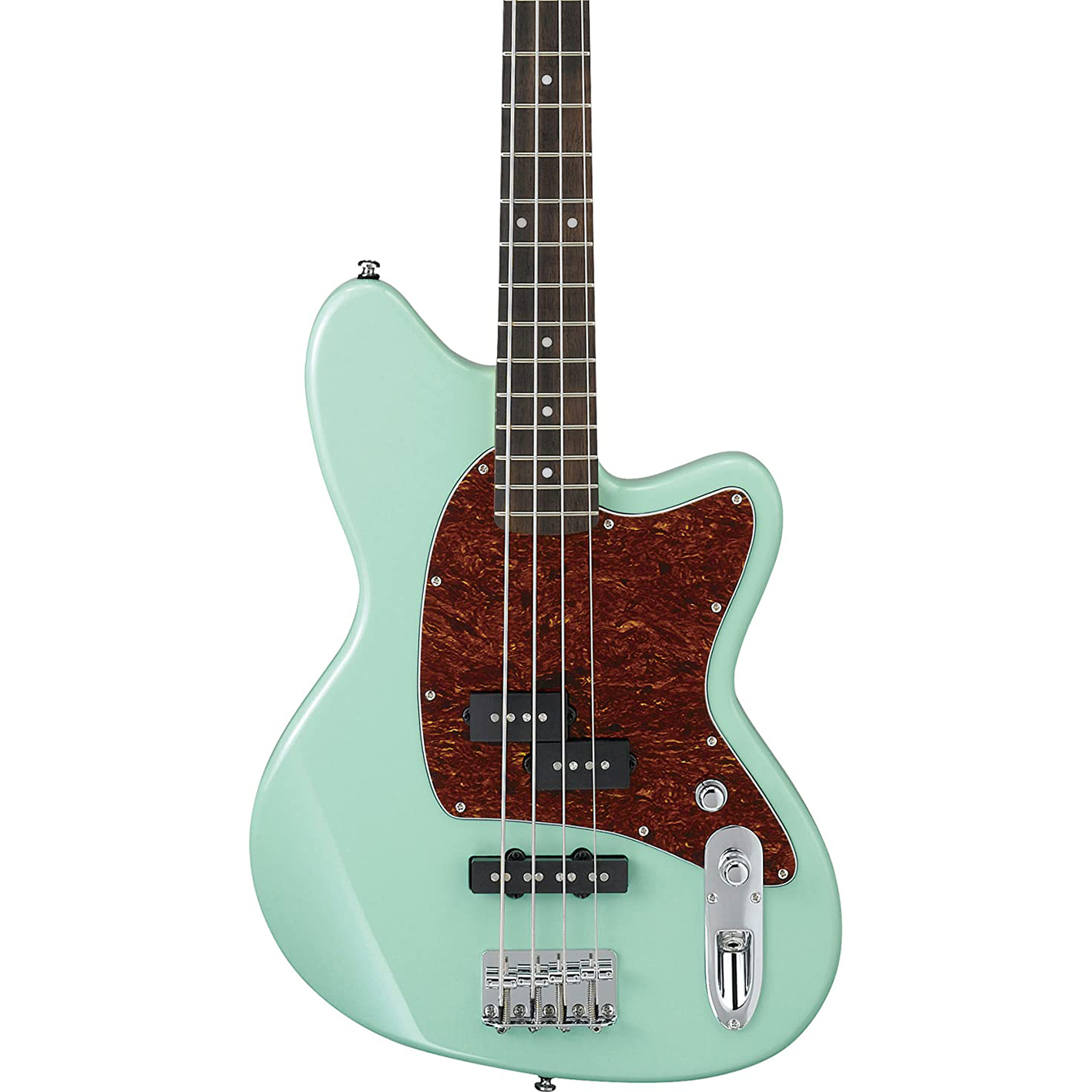
The DXP and DXJ pickups are hot, so expect a big slap in the face when you plug this bass in. The TMB100 is an active bass and an on-board 2-band EQ grants the ability to shape your sound. Although some may prefer a 3 or 4-band EQ, the versatility the TMB100 offers punches well above its price tag. There is an array of different finishes available, but our favorite is the Ivory with accompanying tortoiseshell pickguard.
Best overall
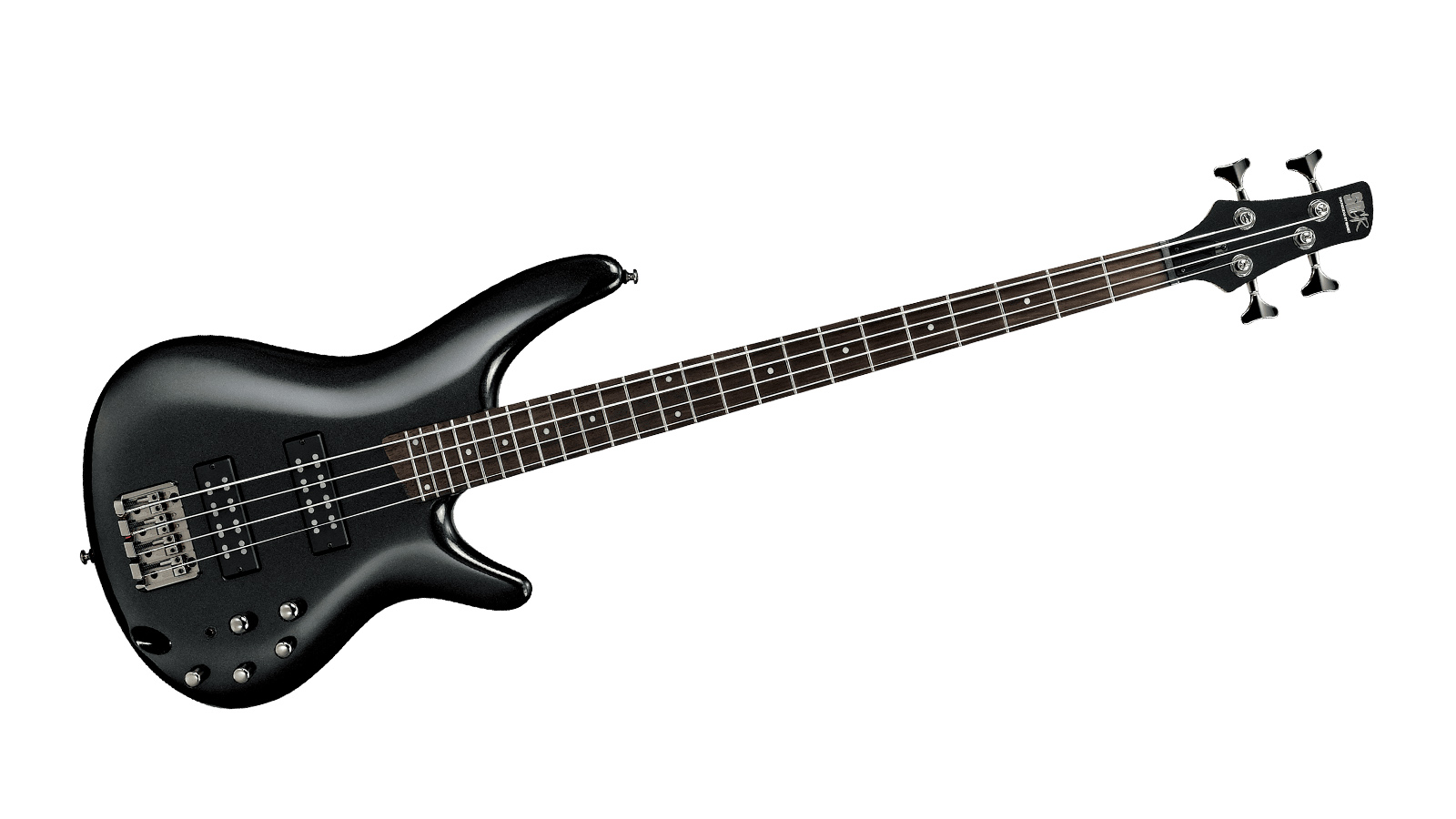
1. Ibanez SR300E
Our expert review:
Specifications
Reasons to buy
Reasons to avoid
This bass can cover so much ground in terms of musical styles. If you want a modern rock or metal sound, then the high output PowerSpan Dual Coil humbuckers can dish out powerful, thunderous tones whilst retaining note clarity nicely. However, at the push of a button you can switch these pickups into single coil mode for more traditional, old-school tones. There’s even a low-end enhanced single coil mode for beefing up those bass frequencies. Add to this an active EQ and you’ve got a pickup system with which you can really nail any tone.
The body is nice and sleek and lightweight too, making playing comfortable, whether you’re stood up or sat down. The cutouts also make access to any fret on the fingerboard really easy. The hardware is of a decent quality too, so tuning stability, intonation and resonance won’t prove to be an issue.
It’s more of a modern looking instrument, so it might not be right for someone wanting a classic looking bass, but don’t let that put you off – there really isn’t much it can’t do in terms of tones.
Best for beginners
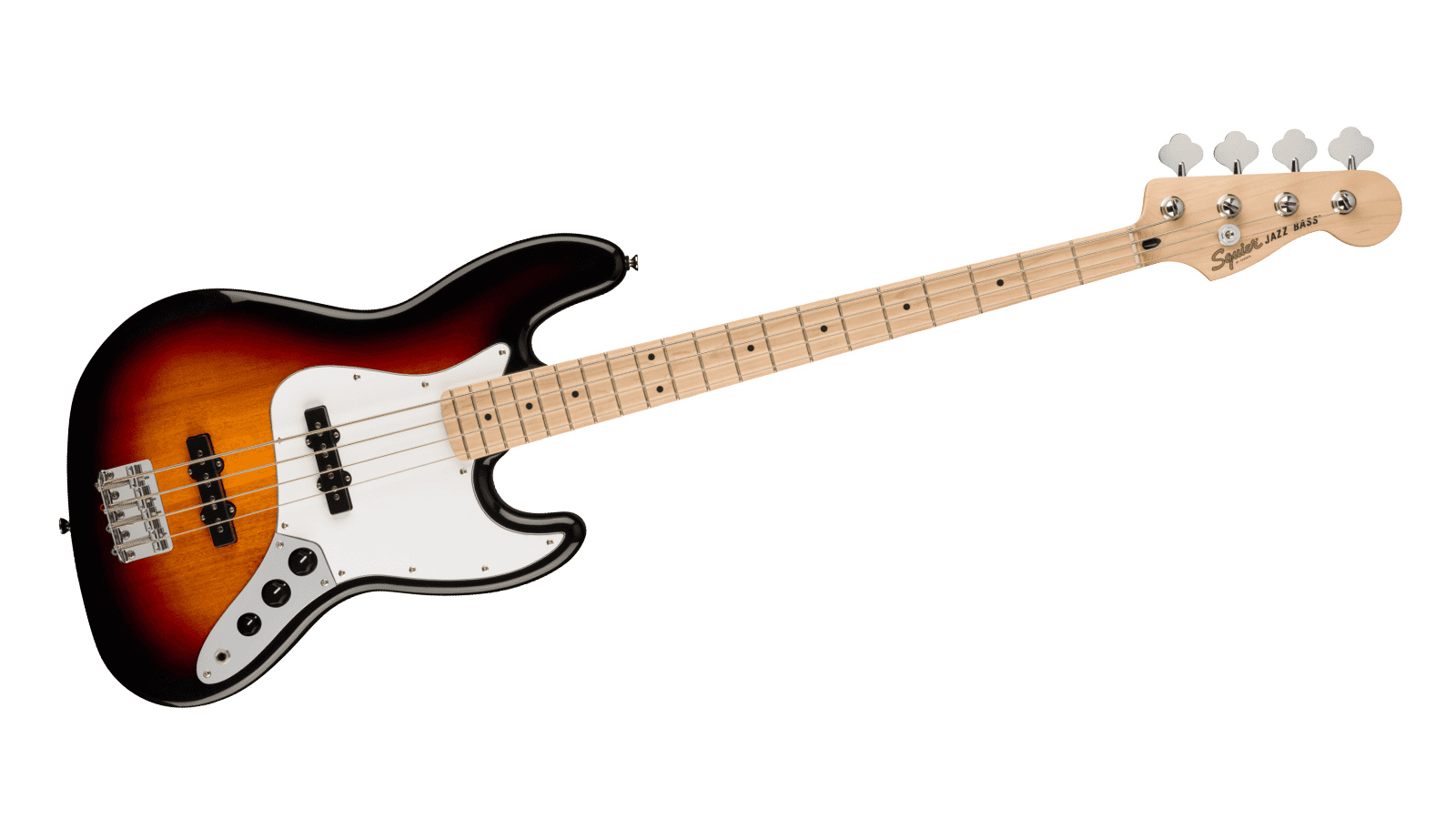
2. Squier Affinity Jazz Bass
Our expert review:
Specifications
Reasons to buy
Reasons to avoid
This is a no-frills Jazz bass made by Squier, the sister company of Fender. The Jazz bass has been the choice of loads of bassists over the years including Flea, John Paul Jones, Geddy Lee and plenty more. Whether it’s funk, rock or pretty much anything else you’re playing, you can’t go wrong with a Jazz bass.
Squier’s Affinity range aims to provide players with high quality instruments at an affordable price. If you’re just starting out and you want a reliable bass that doesn’t cost too much, then this is one of the best options out there. The hardware, pickups and build quality are all up to a good standard so you’ll get decent tones, it’s going to stay in tune well, and it will be comfortable to play. Whilst you might not get the same sort of definition and clarity as some more expensive basses, it’s a great piece of kit for the money.
Best for rock
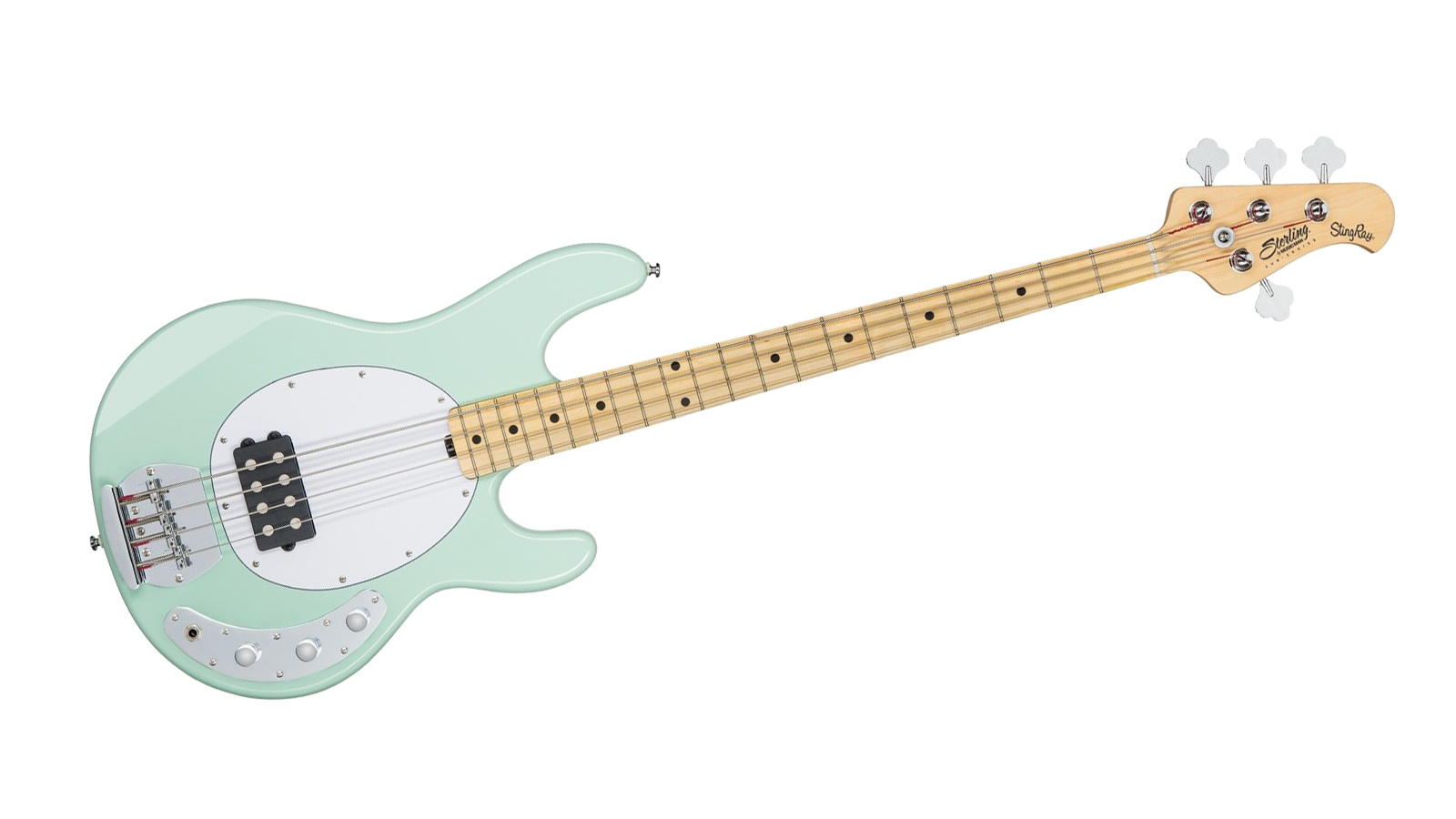
3. Sterling SUB Ray4
Our expert review:
Specifications
Reasons to buy
Reasons to avoid
This is a cheaper version of the famed Music Man Sterling bass. Fitted with a single humbucker, it’s capable of summoning some great, rumbly bass tones suitable for everything from rock and metal to jazz and funk. The on-board active EQ is great for tone shaping as well, allowing you to cut or boost both treble and bass frequencies so that you can be heard better in a mix. Even though it’s a single pickup bass, you can get a really wide range of tones.
These things play great straight out of the box too, with a slim neck profile to suit any playing style. Fingerstyle players can pluck, slap and pop with ease, and for those who feel more comfortable with a guitar pick, the layout makes that a piece of cake too.
For the money, this is hard to beat – definitely one of the best budget bass guitars in our price range. If you need an extended lower range, it’s also available in a 5-string format too.
Best budget P-bass
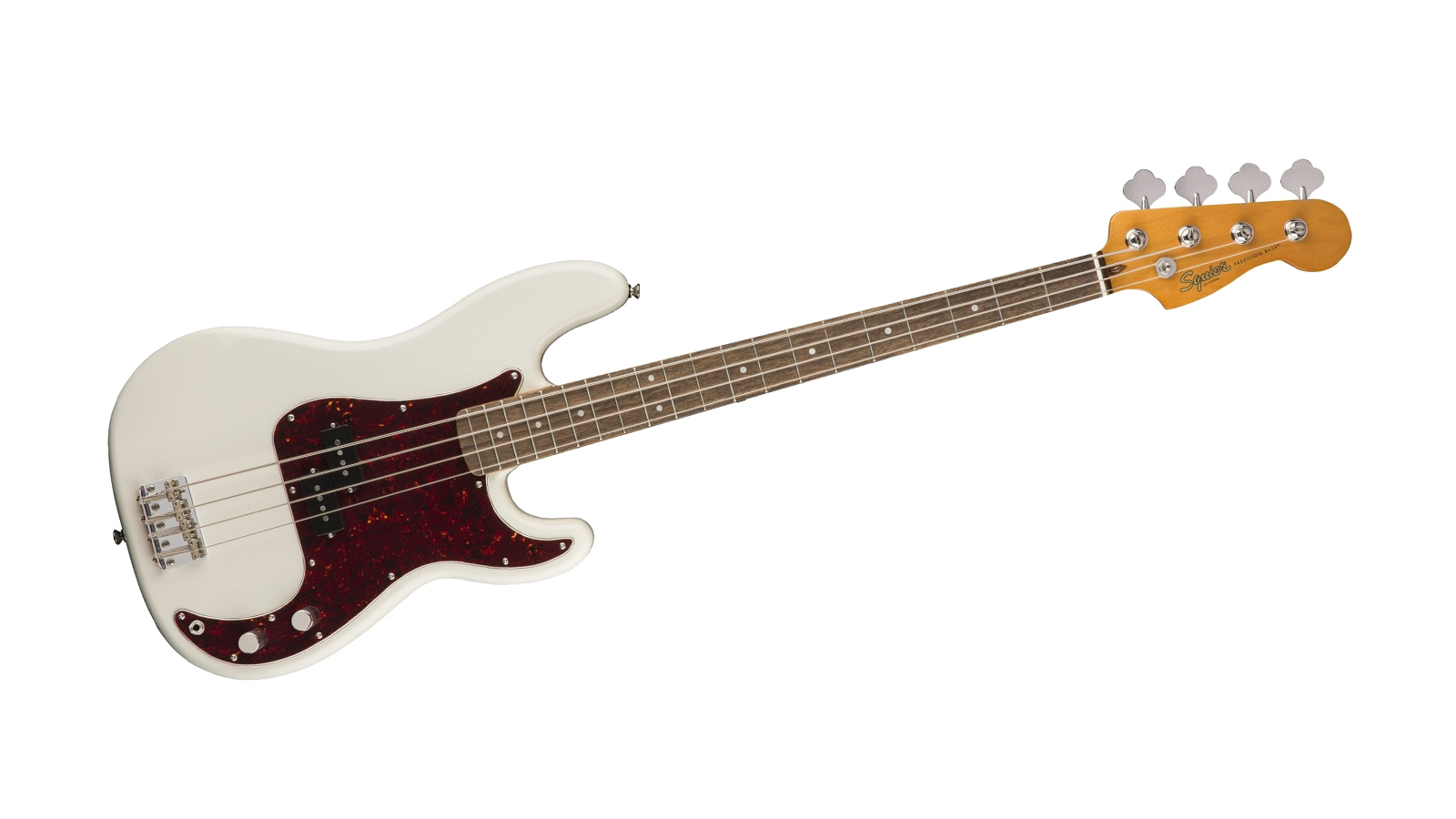
4. Squier Classic Vibe ’60s P-Bass
Our expert review:
Specifications
Reasons to buy
Reasons to avoid
Few basses are as iconic as the Precision. It was one of the earliest solidbody bass guitars and it can be heard on countless classic recordings from over the last 70 years or so. Now, you can get that classic P sound in the form of the Squier Classic Vibe ’60s Precision Bass.
The Squier Classic Vibe Precision gives you that luscious deep, warm tone, with a nice little mid-range bump. It’s a key part of the soul and Motown sound, though classic rock, punk, pop and country bassists love them too – basically, there’s not much they can’t do. It has a single pickup, with a volume and tone knob – the latter of which, when moved around, can have a massive impact on the sound.
Squier’s build quality is fantastic and the Classic Vibe models are some of their best. The ’60s P Bass serves up some old-school vibes for players on a budget, though to be honest, it’s a great bass for anyone to have in their arsenal.
Best for metal
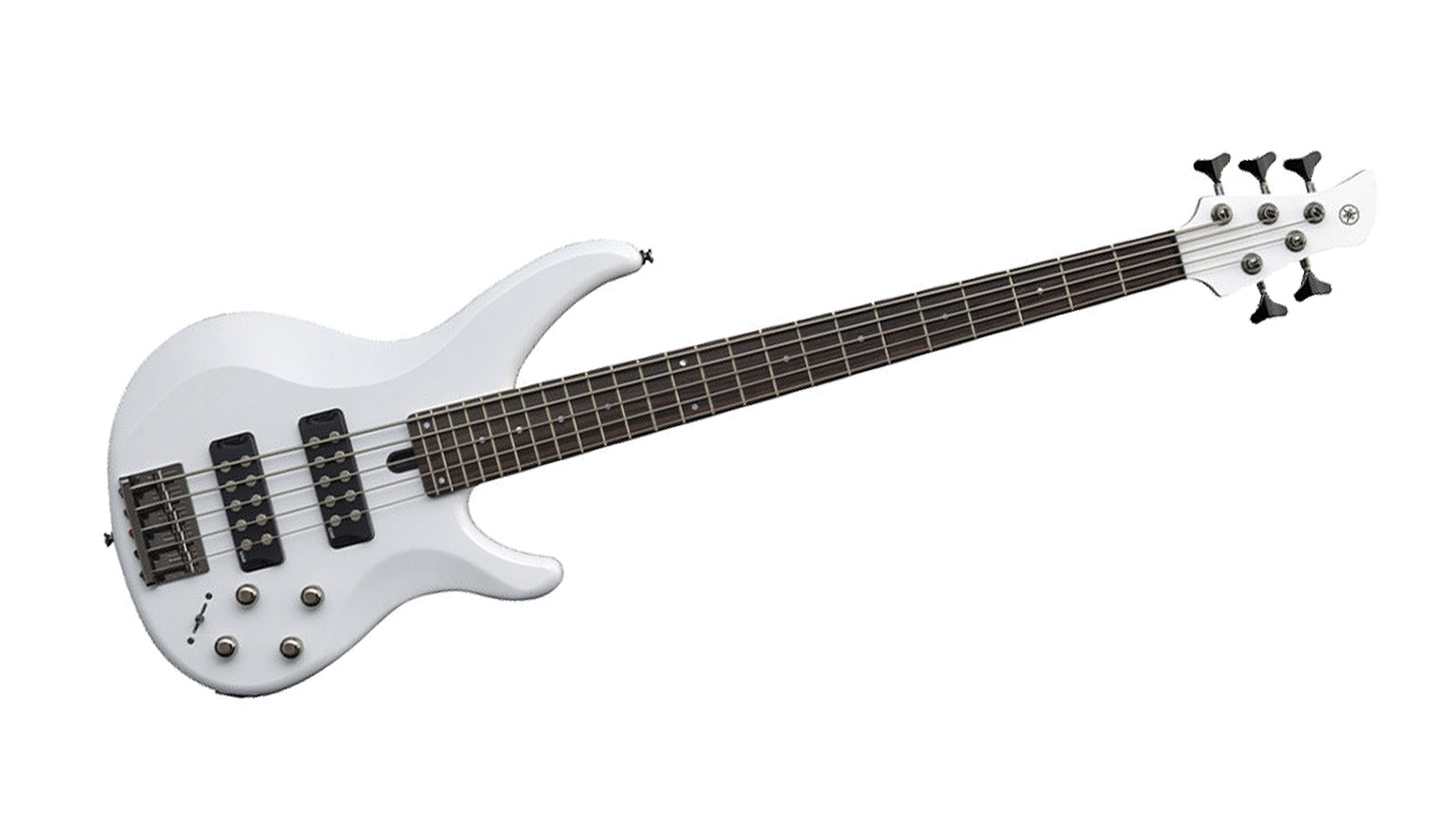
5. Yamaha TRBX 305
Our expert review:
Specifications
Reasons to buy
Reasons to avoid
Available in both 4 or 5 string formats, the Yamaha TRBX 300 bass guitars are powerful beasts. Fitted with ceramic magnet-equipped pickups that help deliver a strong, deep, clear tone, they’re great for everything from jazz to metal. Whether you need a dynamic clean tone, or a full-on, overdriven rock bass sound, these hum-cancelling pickups, along with an active EQ, have you covered.
The mahogany body has curves in the right places making it really comfortable to play for long periods both sat down and stood up, and the fairly slim neck profile is great for a range of playing styles. The pickups even have a slight contour cut out of the edge for you to rest your thumb, which makes playing fingerstyle that bit more comfortable.
The Yamaha TRBX 305 (and its four-string counterpart) covers a lot of ground. If you need a bass to cater for various genres, then this could well be it, though it really excels as a rock and metal bass.
Best short scale option
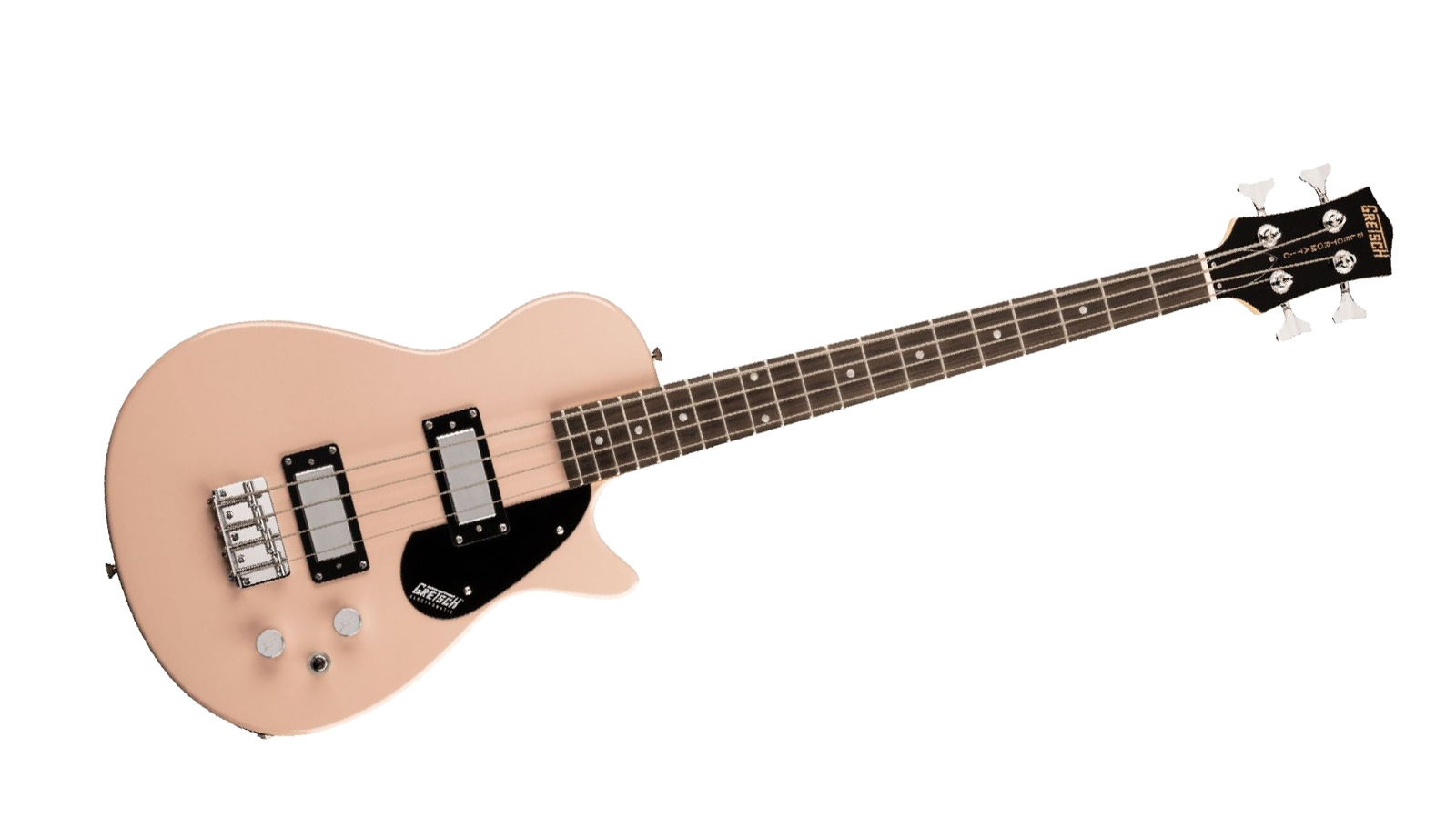
6. Gretsch G2220 Electromatic Junior Jet II
Our expert review:
Specifications
Reasons to buy
Reasons to avoid
Gretsch make some incredibly stylish instruments, and their short-scale G2220 is a prime example of this. Coming in at well under our $500 budget, it offers some serious bang for buck and will provide indie rockers, country players and metalheads alike with the low end rumble they so desire.
It’s fitted with a pair of single-coil pickups that deliver a range of vintage-inspired tones. The three-way pickup selector allows for a variety of sounds too, from super warm and mellow in the neck position, to a brighter sound with a snappier attack in the bridge position. You’ve also got a tone control alongside the volume for further tweaking.
The short scale offers a slightly different feel which some bassists love. Guitarists moving on to bass also sometimes opt for a short scale bass too, as the scale length feels a little more familiar. The single cut body shape and comfortable neck profile further add to the playability of this bass.
Best vintage sound
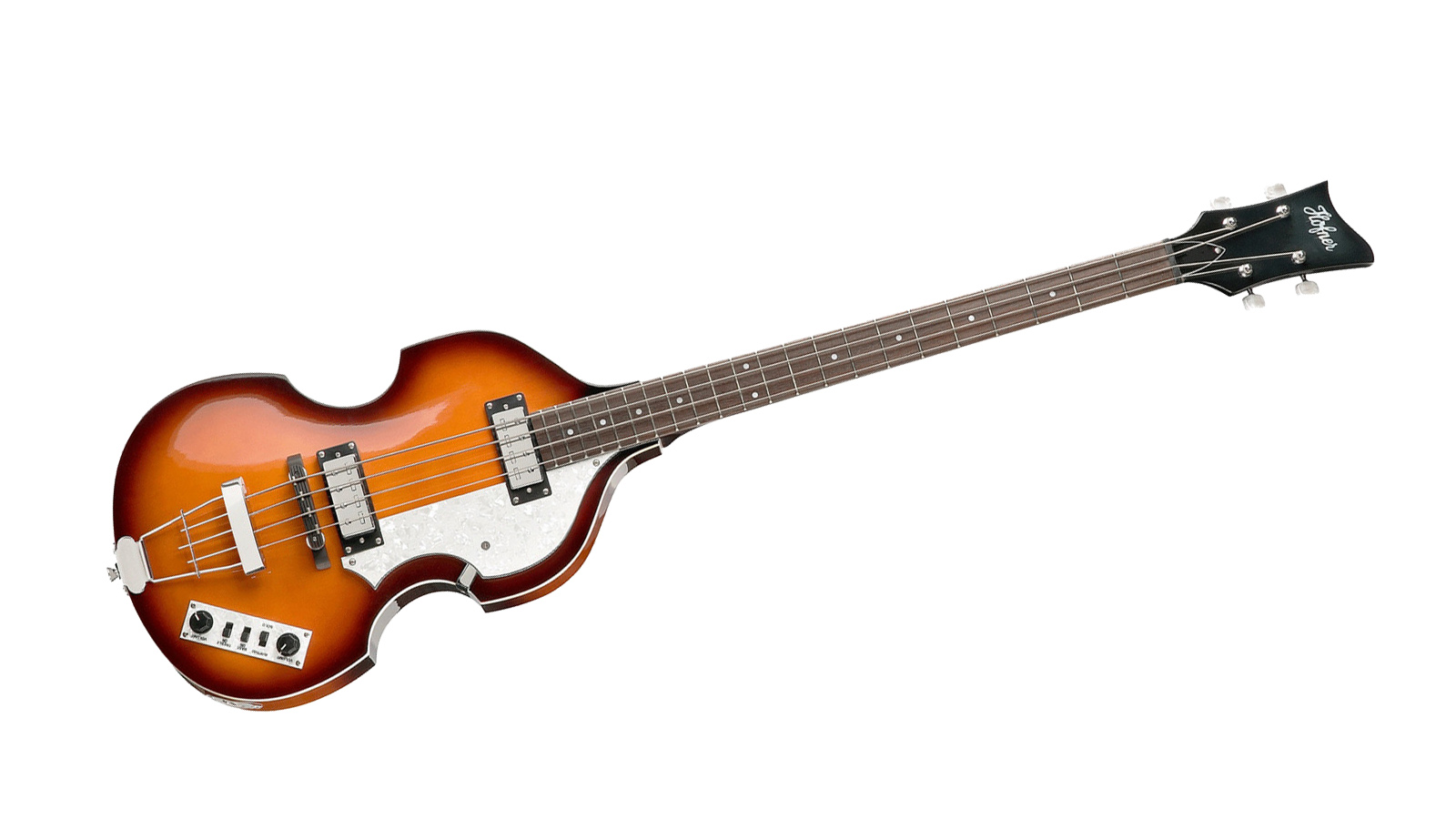
7. Hofner Ignition Bass
Our expert review:
Specifications
Reasons to buy
Reasons to avoid
Now this might not be for everyone, but for fans of the Fab Four, it’s one of the best bass guitars that you can get for under $500. Of course, it’s not the same model as the one McCartney used, but it will certainly get you in the right ballpark.
The Hofner Ignition isn’t just a ‘Beatles bass’ though – it’s actually great for all sorts of different styles of music: classic rock, soul, jazz and more. You don’t get much sustain, but that’s part of its charm. It’s nice and thumpy, without much top end but plenty of rounded, warm, bottom end and a nice attack. These are actually great recording basses, provided you don’t need sustain or much rumble, as they can sit really nicely in the mix before even touching an EQ. It’s also a short scale bass, so it’s ideal for younger or smaller bassists.
Best for tone shaping
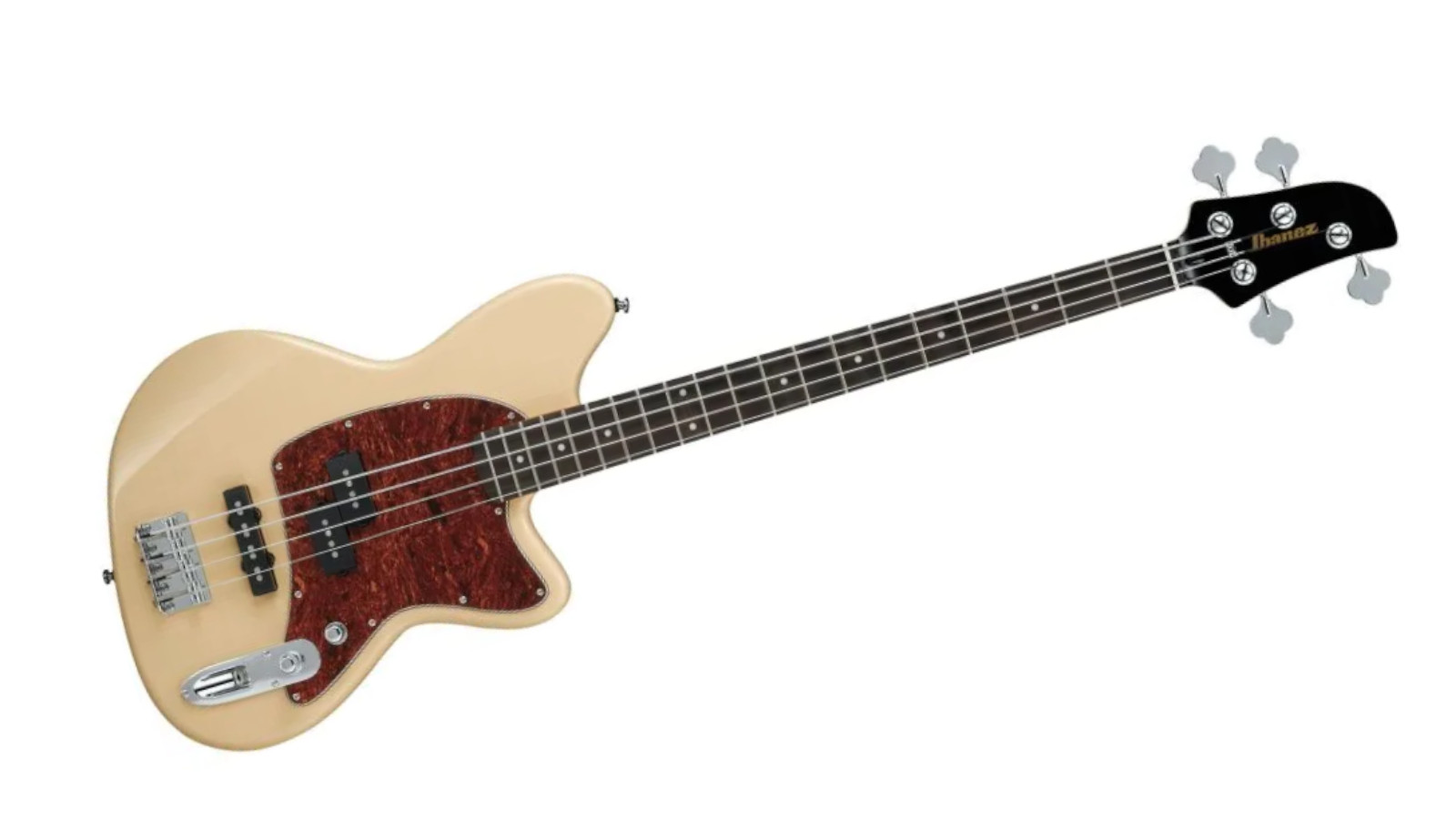
8. Ibanez Talman TMB100
Our expert review:
Specifications
Reasons to buy
Reasons to avoid
Now, Ibanez is not known for its offset designs. So when the Talman hit the market in 1994, it raised a few eyebrows. The vintage-inspired body shape is now available in the TMB-100 range, which is fantastic news for bass players on a budget looking for something a little different.
The DXP and DXJ pickups are hot, so expect a big slap in the face when you plug this in. The TMB100 is an active bass and an on-board 2-band EQ grants the ability to shape your sound. Although some may prefer a 3 or 4-band EQ, the versatility the TMB100 offers punches well above its price tag. There is an array of different finishes available, but our favorite is the Ivory with accompanying tortoiseshell pickguard, evoking the allure of a timeless vintage era.
Buying advice
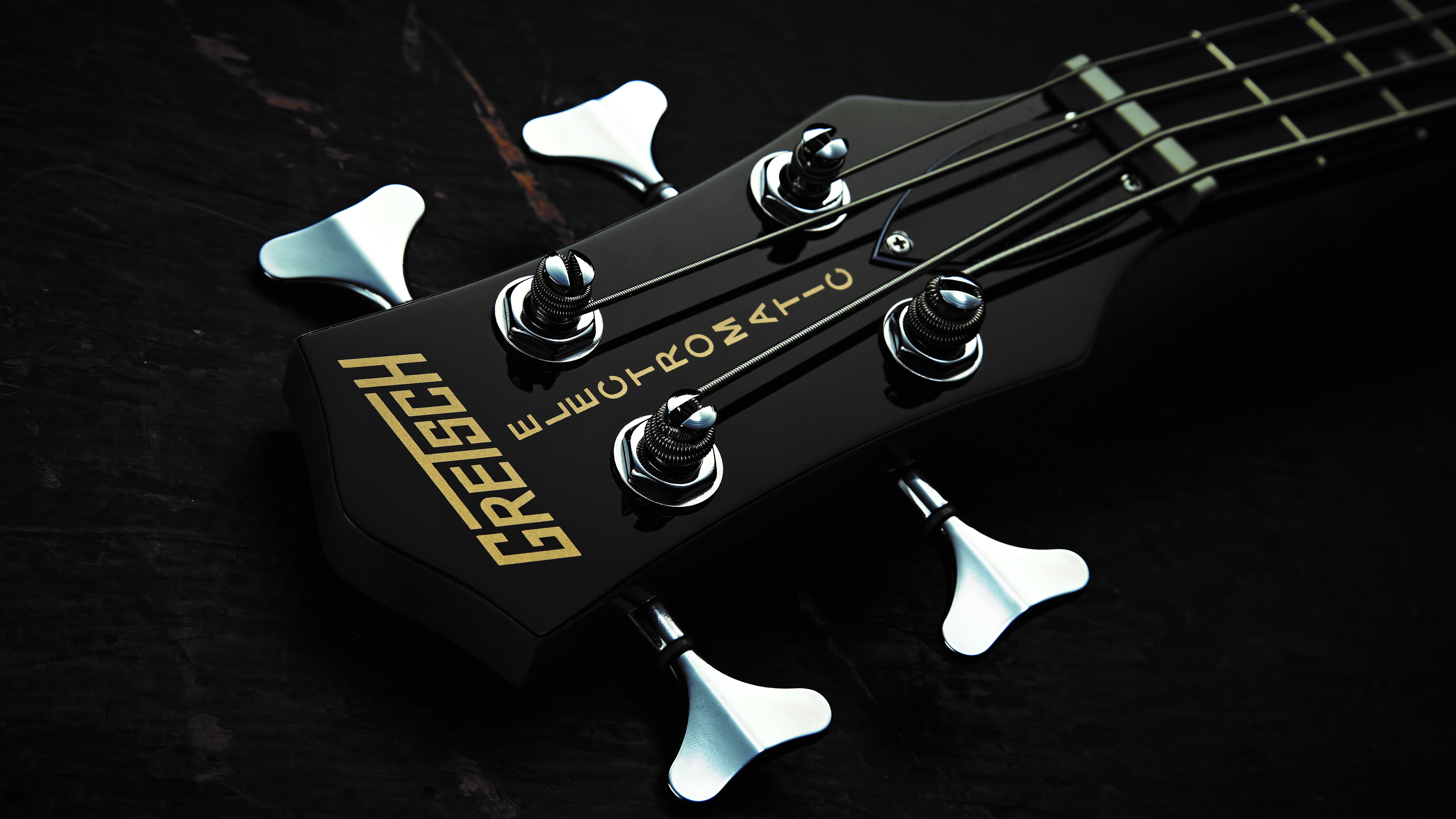
How to choose the best budget bass guitar for you
You can trust Guitar World
So, you’re ready to spend your cash on a great bass guitar. You’ve already set your max budget as $500/£500, so what else do you need to consider?
Vintage vs modern style
The first thing is sound. Do you want a classic bass sound, as heard on some of your favorite old-school records? If so, then check out a bass with a vintage style spec. Squier’s versions of the Fender P and Jazz basses haven’t altered too much over time so will get you in the right ball park.
If you’re after something a little more contemporary, then you might want to look at a bass with a few more features. An active EQ can go a long way in helping you shape your tone, and higher output bass pickups will allow you to get bigger, chunkier and dirtier tones that are much more suited to today’s heavier styles of music.
Basses with more than one pickup will also allow you to change or blend between them too, which can be great if you need a variety of tones to hand. Of course, so much of the sound is in your fingers, so if you feel more comfortable with a particular style of bass, then you’ll almost certainly be able to make whatever you’ve got for work for you.
What bass body size/shape do I need?
This brings us on to your next consideration – comfort. There are a number of different factors that can make a bass guitar comfortable for you. The different body shapes and sizes will suit different people, as will the neck profile – certain players prefer thinner, ‘faster’ neck shapes, whereas others get on better with a chunkier neck.
FAQs
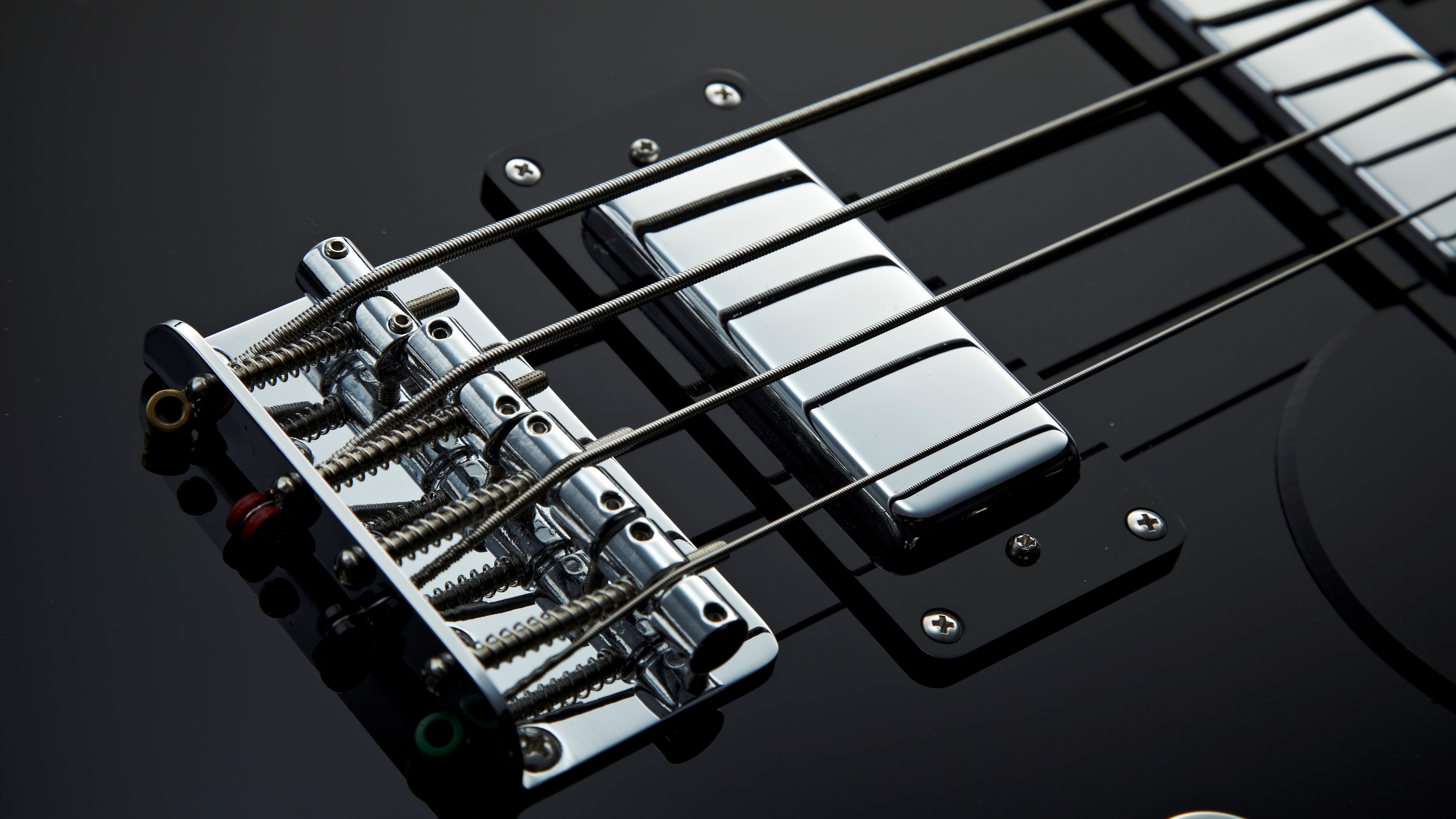
Does bass scale length make a difference?
The scale length can also play a big part in how comfortable you find the bass. The scale length is the distance between the nut at the top of the neck and the string saddles that sit on the bridge. A shorter scale length means that the neck isn’t quite as long, so reaching down to the bottom frets is less of a stretch, and this can be ideal for younger beginners with a smaller arm span. Some adult bassists also find a short scale more comfortable too; it’s down to personal preference.
How much should I spend on a budget bass guitar?
We've set our upper limit to $500 as we feel that anything which costs more than that can't really be considered 'budget' – but it's definitely possible for you to get something great for less than that.
In fact, our number one pick in this guide – the Ibanez SR300E – comes in at a sweet $350/£255, and is equipped with sophisticated pickups and pickup switching ability. It's one of the most versatile basses on this list by a long shot, and the price at which it sits is incredible.
The main cost-cutting factor in budget bass guitars is the wood that the body is made from. In this price category, you see basswood, poplar, and nyatoh making up a large proportion of these basses' spec sheets. There's nothing wrong with a cheaper body wood, mind – all of these bass guitars still sound fantastic – but it does imply that most of the value of a budget bass guitar is in the electronics and in how the thing feels to play.
We'd even go as far as to say that there's not much of a noticeable tonal difference between budget basses and more high-end models. Take two P-Basses – a Squier Classic Vibe and a Mexican-made Player Series. Same design, same pickup configuration – but one costs roughly $500 more than the other. The difference in sound, looks and finish is negligible – and maybe the Mexican one feels a little bit nicer? We might even be pushing it there too, you know.
All we'll say is, unless you really want to spend more on a bass with a certain name or spec sheet, a budget bass guitar will do just fine. A controversial opinion perhaps?
Which brands make the best budget bass guitars?
There are some good reliable brands to keep an eye out for too when shopping for the best cheap basses. The likes of Squier, Sterling and Epiphone are all overseen by their big-sister companies – Fender, Music Man and Gibson respectively – who are all major players in the bass world. The likes of Yamaha, Ibanez and Gretsch are also synonymous with making high quality musical instruments, so you’re in good hands with any of those, too.
How we choose the products
Here at Guitar World, we are experts in our field, with many years of playing and product testing between us. We live and breathe everything guitar related, and we draw on this knowledge and experience of using products in live, recording and rehearsal scenarios when selecting the products for our guides.
When choosing what we believe to be the best budget bass guitars available right now, we combine our hands-on experience, user reviews and testimonies and engage in lengthy discussions with our editorial colleagues to reach a consensus about the top products in any given category.
First and foremost, we are guitarists, and we want other players to find the right product for them. So we take into careful consideration everything from budget to feature set, ease of use and durability to come up with a list of what we can safely say are the best budget bass guitars on the market right now.
Read more about our rating system, how we choose the gear we feature, and exactly how we test each product.
Related buying guides
- Check out the best beginner bass guitars
- Our pick of the best 5-string bass guitars
- Plug into one of the best bass amps
- These are the best bass amps for practice
- These are the best bass compressor pedals
- Summon Lucifer with the best basses for metal
- Treat the bassist in your life with the best gifts for bass players
All the latest guitar news, interviews, lessons, reviews, deals and more, direct to your inbox!
After spending a decade in music retail, I’m now a freelance writer for Guitar World, MusicRadar, Guitar Player and Reverb, specialising in electric and acoustic guitars, bass, and almost anything else you can make a tune with. When my head’s not buried in the best of modern and vintage gear, I run a small company helping musicians with songwriting, production and performance, and I play bass in an alt-rock band.

